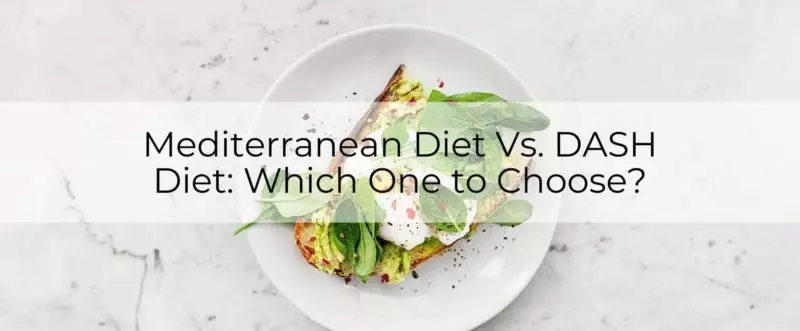
Did you know that about 45% of American adults have hypertension or take medication for high blood pressure? Another disturbing fact is that according to the CDC, only 1 in 4 adults control their hypertension. [1]
*For reference, hypertension is having a systolic blood pressure ≥ 130 mm Hg or a diastolic blood pressure ≥ 80 mm Hg.
Furthermore, in America, about 29 million adults and 7% of children and adolescents (age 6 to 19) have high total cholesterol levels (>240 mg/dL). [2]
These numbers may suggest an epidemic of hypertension and high cholesterol, which are risk factors for the development of various chronic health conditions, including heart disease, kidney disease, and metabolic syndrome.
Many argue that the Western diet accompanied by a sedentary lifestyle are leading causes of both hypertension and high cholesterol. Even though medications are often recommended to treat these health conditions, lifestyle and dietary changes can be effective complementary treatment strategies (and even primary treatment strategies for people at the early stages.)
According to UNC Health, the Mediterranean and DASH diets are commonly recommended to patients with (pre)hypertension and high cholesterol. [3]
But is it worth adopting these diets? Which diet is more effective, easier to adopt, and sustainable?
This article compares the Dash diet vs Mediterranean diet: Food lists, health benefits, and drawbacks are some of the points we will look at.
Let’s get started!

What is the DASH diet?
“DASH” is an abbreviation for Dietary Approaches to Stop Hypertension. This diet is specifically created to prevent and treat high blood pressure and focuses on consuming foods rich in potassium, calcium, magnesium, and fiber. These nutrients play an important role in supporting healthy blood pressure levels. [4] The DASH diet is also recommended to patients with prehypertension, kidney disease, and to those who are at risk of heart disease.
The DASH diet limits the intake of the following foods:
- Sodium, also known as salt (to up to 2,300 mg per day, or about 1 tablespoon)
- Saturated fats (e.g., animal fat, butter, shortening, fatty red meat, processed meat, coconut oil, full-fat dairy foods, and processed food)
- Large amounts of added sugars
The DASH diet doesn’t focus on the consumption of a specific number of calories or macronutrient distributions. However, it sets guidelines with a suggested number of servings per food group.
What is the Mediterranean diet?
The Mediterranean diet is the typical diet of people living in the Mediterranean countries: Greece, France, Spain, and Italy. [5] This diet is primarily plant-based, focusing on consumption of whole foods, plant protein, fiber, healthy oils, and antioxidants. There are no specific guidelines when it comes to calories, portion sizes, and macronutrients.
This diet limits the consumption of red meat, saturated (primarily animal-based) fats, animal protein, processed foods, sweetened drinks, and foods with added sugar.
Another component of this diet is physical activity. This is a very unique component of this diet, as many diets do not incorporate physical activity as a part of their framework.

DASH diet vs Mediterranean diet: What to eat
According to the NIH [6], here is a list of the number of servings (per food group) as per DASH diet guidelines based on 2000-calorie consumption:
- Grains and bread: 7-8 servings per day
- Vegetables: 4-5 servings per day
- Fruits: 4-5 servings per day
- Low-fat or non-fat dairy: 2-3 servings per day
- Meat, poultry, fish: up to 6 ounces per day
- Nuts and seeds: 4-5 servings per week
Here is a list of all foods to prioritize as a part of the Mediterranean diet [5][8]:
- Fruits
- Vegetables
- Legumes
- Whole grains (bread, pasta, and rice included)
- Fish and seafood (about 2 times a week)
- Nuts and seeds
- Olive oil as primary cooking oil (and other unrefined vegetable oils)
- Poultry and dairy foods (small portions a few times a week)
- Herbs and spices

Health benefits
According to UNC Health, both the DASH and Mediterranean diets are associated with the following health benefits [3]:
- Reduction in blood pressure
- Weight loss
- Reduced hypertension (by 4 points with every 10 pounds weight loss)
- Lower risk of heart disease
- Reduced inflammation in the body
- Lower risk of osteoporosis, cancer, stroke, and diabetes
Benefits of the DASH diet
Cleveland Clinic suggests that DASH diet adherence could effectively lower blood pressure in both individuals with elevated blood pressure and others with blood pressure within normal limits. Furthermore, reducing your sodium intake (to 1,500 mg daily) in combination with the DASH diet may have a greater effect on lowering blood pressure levels. [9]
The source also notes that the DASH diet can be beneficial for lowering LDL cholesterol (the type of cholesterol more strongly correlated with adverse health outcomes) and total cholesterol levels.
Benefits of Mediterranean diet
The Mediterranean diet is associated with blood pressure and cholesterol-lowering effects. In addition, evidence suggests that adherence to the Mediterranean diet may lower the risk of diabetes, metabolic-related health conditions, and mental disorders (including depression and cognitive decline.) [10] There are also claims that this diet may play a role in reducing cancer risk. However, more evidence is needed to support these claims.

Drawbacks
As both diets are extremely similar with a large degree of overlap, the drawbacks for each diet are also very similar [6][11]:
- Requires special meal planning and cooking – also learning to monitor food labels for sodium intake
- Risk of eating too many calories, as there are no calorie or portion goals set
- Too many calories on Mediterranean diet may lead to weight gain or difficulty losing weight
- Some people may experience side effects like gas and bloating when starting the DASH diet, due to high fiber intake. With adherence to this diet, these adverse effects usually disappear.
*People who are advised to follow a low-FODMAP diet should speak to their healthcare provider before considering adopting the DASH diet for health purposes. The DASH diet encourages consumption of foods, which should be limited in low-FODMAP diet.








